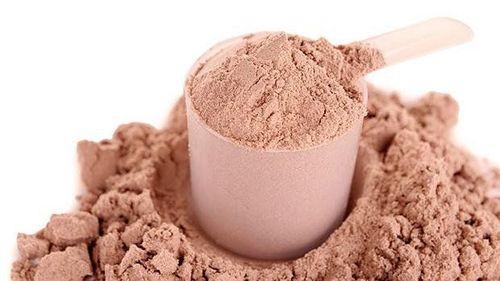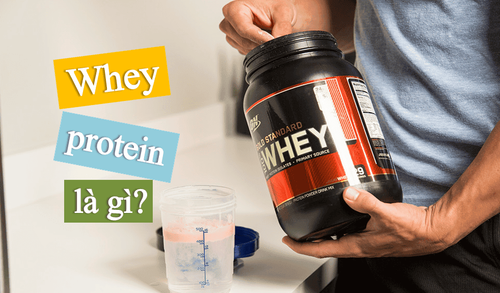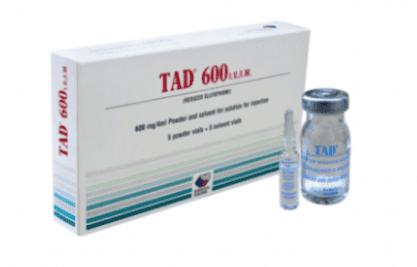This is an automatically translated article.
Glutathione is an antioxidant, which is an important component present in cells. Glutathione levels in the body can be reduced by a number of factors, including poor nutrition, environmental toxins, and stress. Glutathione levels also decline with age. In addition to being produced naturally by the body, glutathione can be given intravenously, topically, or as an inhaler.1. Benefits of Glutathione
Glutathione offers a number of benefits such as:
Reduces oxidative stress: Oxidative stress occurs when there is an imbalance between the production of free radicals and the body's ability to fight them. Excessively high levels of oxidative stress can be a precursor to many diseases. These include diabetes, cancer and rheumatoid arthritis. Glutathione helps block the effects of oxidative stress, which in turn may reduce disease. An article cited in the Journal of Cancer Science and Therapy indicates that a lack of glutathione leads to increased levels of oxidative stress, which can lead to cancer. Increased levels of glutathione increase antioxidant levels and resistance to oxidative stress in cancer cells. Improve psoriasis: when taking whey protein, you can improve psoriasis. Whey protein has been shown to increase glutathione levels. Study participants were given 20g as a daily supplement. Reducing cellular damage in alcoholic and non-alcoholic fatty liver disease: liver damage can be aggravated by a deficiency of antioxidants, including glutathione. This can lead to fatty liver disease in both alcohol abusers and non-users. Glutathione has been shown to improve the blood levels of proteins, enzymes, and bilirubin in people with chronic alcoholic and non-alcoholic fatty liver disease. One study has shown that glutathione is most effective when given intravenously in high doses to people with fatty liver disease. Study participants also showed a reduction in malondialdehyde, a marker of cell damage in the liver. Use of glutathione has positive effects on people with non-alcoholic fatty liver disease after active lifestyle changes. In this study, glutathione was given in supplement form at a dose of 300 milligrams daily for four months.
Improves insulin resistance in older adults: As people age, they produce less glutathione. The researchers used a combination of animal and human studies to explore the role of glutathione in weight control and insulin resistance in the elderly. Research results indicate that low glutathione levels are associated with less fat burning and a higher rate of fat storage in the body. Older subjects added cysteine and glycine to their diets to increase glutathione levels, which spiked within two weeks, improved insulin resistance, and burned fat. Increased mobility for people with peripheral artery disease: Peripheral artery disease occurs when the peripheral arteries become blocked by plaque. It usually occurs in the legs. One study reported that glutathione improved circulation, increasing the ability of study participants to walk painlessly for longer distances. Participants receiving glutathione but not a saline placebo were given intravenously twice daily for five days, and then analyzed for mobility. Reduce symptoms of Parkinson's disease: Parkinson's disease affects the central nervous system and has symptoms such as tremors. The disease currently has no cure. One study documented the positive effects of intravenous glutathione on symptoms such as tremors and stiffness. Although more research is needed, some surveys suggest that glutathione can help reduce symptoms and improve quality of life in people with this condition.

Glutathione giúp giảm các triệu chứng parkinson
May fight autoimmune disease: Chronic inflammation caused by autoimmune diseases can increase oxidative stress. These diseases include rheumatoid arthritis, celiac disease, and lupus. According to some studies, glutathione helps reduce oxidative stress by stimulating or decreasing the body's immune response. Autoimmune diseases attack mitochondria in specific cells. Glutathione works to protect the cell's mitochondria by scavenging free radicals. May reduce oxidative damage in autistic children: Several studies, including one clinical trial, have shown that children with autism have higher levels of oxidative damage and lower levels of glutathione in Brain. This increases susceptibility to nerve damage in autistic children from substances such as mercury. Eight-week clinical trials in children 3 to 13 years of age used oral or transdermal applications of glutathione. Autistic symptom change was not assessed as part of the study, with children in both groups showing improvements in whole blood cysteine, sulfate, and glutathione levels.
May reduce the impact of uncontrolled diabetes: Long-term high blood sugar has been linked to reduced levels of glutathione. This can lead to oxidative stress and tissue damage. One study found that supplementing the diet with cysteine and glycine increased glutathione levels. It also reduces oxidative stress in people with uncontrolled diabetes, despite the high sugar intake. Study participants were placed on 0.81 millimole per kilogram (mmol/kg) of cysteine and 1.33 mmol/kg of glycine daily for two weeks.
Relieves Symptoms of Respiratory Diseases: N-acetylcysteine is a medicine used to treat conditions such as asthma and cystic fibrosis. As an inhaler, it helps to thin mucus. It also reduces inflammation. N-acetylcysteine is a by-product of glutathione found in some foods, although cooking and pasteurization significantly reduce its levels.
2. What food sources does Glutathione come from?
Your body does not seem to absorb glutathione well from food. However, certain foods high in sulfur-containing amino acids can help increase your levels.

Măng tây chứa nhiều Glutathione
Glutathione contains sulfur molecules, which may be why sulfur-rich foods boost natural production in the body. These foods include:
Unprocessed meat Garlic Cruciferous vegetables, such as broccoli, cauliflower, Brussels sprouts and bok choy Asparagus Butter Spinach Unpasteurized milk and dairy products other Eggs Nuts Legumes Fish, chicken Other foods and herbs that help increase glutathione levels naturally include:
Milk thistle Flaxseed Guso seaweed Milkshake Glutathione is also negatively affected by evidence. insomnia. Adequate rest on a regular basis can help increase glutathione levels.
3. Risks of taking glutathione
A diet rich in glutathione-fortified foods does not pose any risks. However, supplementation may not be recommended for everyone. It is advisable to consult with your doctor about glutathione to determine if it is right for you. Possible side effects may include:
cramps, bloating, difficulty breathing due to bronchospasm, allergic reactions, such as rash Glutathione should not be given to pregnant and nursing women.
Customers can directly go to Vinmec Health system nationwide to visit or contact the hotline here for support.
Articles refer to sources: webmd.com, healthline.com
What do you know about whey protein? What is Lysine? Benefits and side effects Non-alcoholic fatty liver: Causes, symptoms, complications













